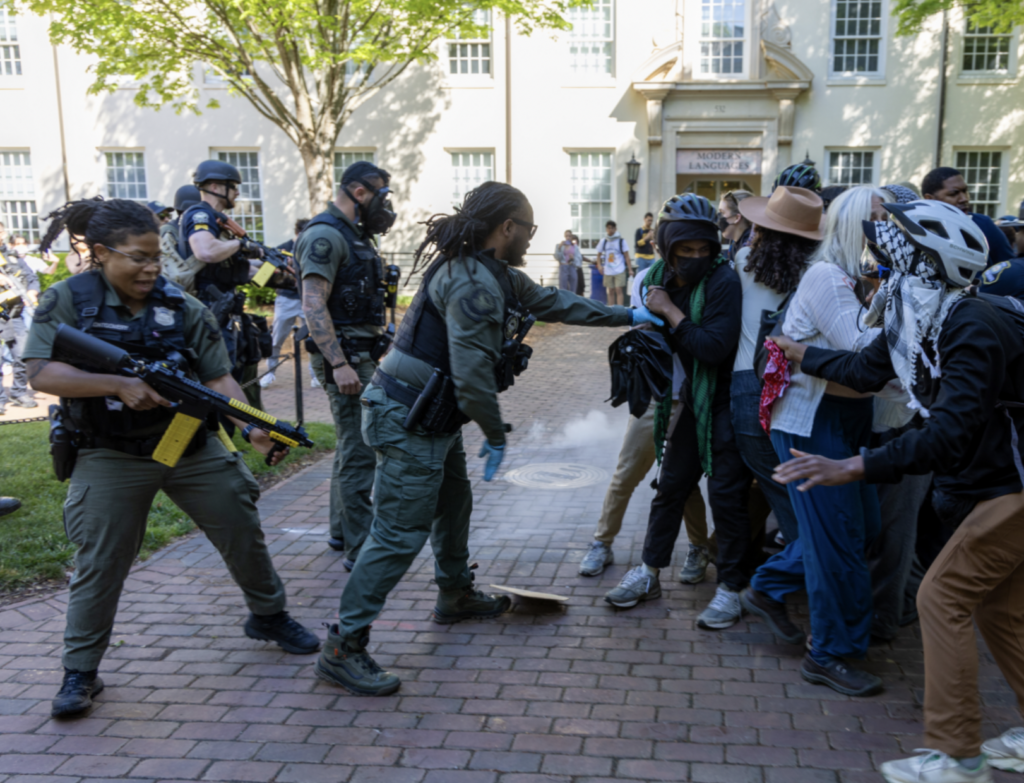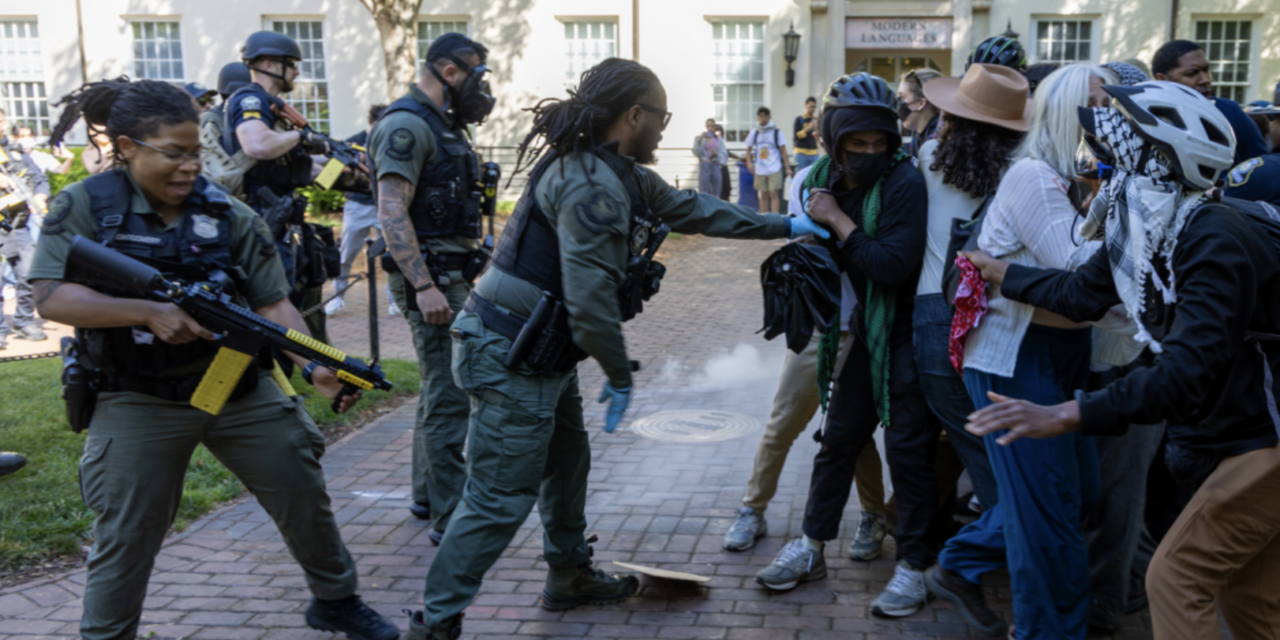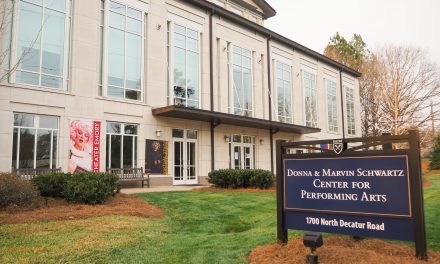Emory University’s Student Government Association (SGA) passed a resolution yesterday during an emergency Zoom meeting that stated SGA was “horrified” at the “police’s use of violence on Emory’s campus” when arresting protestors during a pro-Palestine encampment on April 25. SGA shared the resolution with the Emory community in an Instagram post that evening.
The resolution condemned the law enforcement officers for using chemical agents and electric shocks during the arrests, calling the tactics “unacceptable responses to peaceful protest.” SGA also provided students with a list of resources such as Counseling and Psychological Services and the Office of Spiritual and Religious Life, adding that they deserve to feel safe on campus.
“Peaceful discussion, debate, and dialogue is essential to our community,” the resolution states. “It fosters understanding, moderates extremism, and enriches our education.”
Ranking Member Sohan Bellham (26C), who wrote the resolution, said that SGA needed to release a statement to show that they care about students and that SGA is “working for them.”
“We do need to address in the short term that, yes, there was violence that occurred in this community and we do not support that,” Bellam said.
The resolution also condemns islamophobia, racism, antisemitism and “all forms of hate.”

Atlanta Police Department officers deploy irritant gas among protestors on April 25. The Student Government Association condemned the “police’s use of violence” while arresting protestors. (Jack Rutherford/News Editor)
SGA Vice President Pranay Mamileti (26C) led yesterday’s emergency meeting. Mamileti has attended some of the protests to show his support for fellow students.
“It’s important that when a campus is going through tough times, we don’t shy away from that,” Mamileti said. “We engage in the tough discussions because that’s what we’re all in these positions for.”
Emory-Israel Public Affairs Committee President Sophie Kalmin (26C) spoke during the meeting, explaining that although she disagreed with the content of the protests, she does not agree with the actions of police on Thursday.
“The use of tear gas is reprehensible, despite how vehemently I disagree with the content of the protests and how deeply I think they’re antisemitic,” Kalmin said. “Not, of course, on everything, but a lot of the language like ‘From the river to the sea,’ like ‘Intifada,’ I find to be a call for violence against Jewish people.”
Bellam said Kalmin spoke “very well.”
“Some of the things being said at the protests were vehemently disgusting,” Bellam said. “I understand how members of our community feel uncomfortable because there was hate messages being said, there were antisemitic messages being said.”
These conversations sparked debate In the Zoom chat, with one student writing that she was “super disappointed in the blatant antisemitism in this conversation,” referring to comments discussing the meaning of “intifada.” However, another student responded in disagreement.
“Don’t tell me what my language means,” the student responded. “I was also there the whole protest. Were you? I can verify it was peaceful.”
At the end of the SGA meeting, Vice President of Wellbeing Asmita Lehther (24Ox) introduced a bill that she co-wrote to send a referendum to students that would allow them to vote on whether they have confidence in University President Gregory Fenves, echoing the Emory College of Arts and Sciences’ College Senate’s plans to do the same. However, SGA has to read bills at two meetings before holding a vote, and the group is done with its regular meetings for the year. SGA has not announced plans for calling an emergency meeting, leaving the future of the bill unclear.
Spencer Friedland (26C) is from Long Island, New York and is the Emory Wheel's Managing News Editor. He is a Philosophy, Politics and Law major and has a secondary major in Film. Spencer is also a part of the Franklin Fellows program at Emory.





